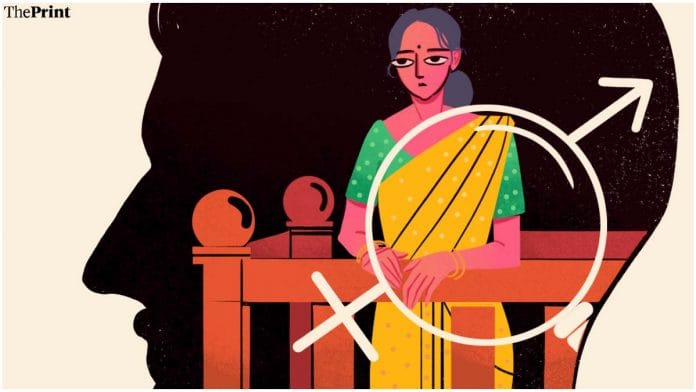No one gets married with divorce on their minds. After all, marriage is considered a union of a lifetime. While that is the case for many people, not all marriages are made in heaven. Some appear to be a slice straight out of hell!
Fortunately, divorce is no longer considered a taboo. More and more people are now opting to get out of marriages that only bring them misery. I am sure you have seen this happening around you; suddenly all of us know at least one person who has gotten a divorce. Although India still has one of the lowest divorce rates in the world, the number is definitely on the rise.
When we picture a typical divorce, what comes to mind is a bitterly fought case, toxic accusations, and extreme mental and financial drain. But a divorce doesn’t always have to be a nightmare. It can also be a ticket to freedom and a happier life! Think of it like an option to exit a marriage that is no longer working.
Just like marriage is governed by personal laws according to religion, divorce is also covered by personal religious laws.
Under the Hindu Marriage Act and the Special Marriage Act, you cannot ask for a divorce within the first year of marriage. The law wants you to give your marriage at least one year before you decide to call it quits. This requirement can be waived off by the court in exceptional circumstances, on a case-to-case basis.
With that in mind, let us understand how you can exercise this option.
Mutual consent vs contested divorce
Can I ask for a divorce simply because I am no longer happy in my marriage? What if my partner wants to divorce me, but I don’t? If both of us can no longer stand each other, what type of divorce should we opt for? The answers to all your questions are right here in this chapter!
Getting a divorce in India boils down to two main options: the mutual consent route and the contested divorce route.
A mutual consent divorce is when both spouses agree to exit the marriage. They can draw up the terms of exit, such as division of assets, alimony and custody of children, and present it before a court to get divorced. In this case, the mutual desire of the parties is enough. No other legal grounds are necessary.
A contested divorce, on the other hand, is when one of the spouses (either the wife or the husband) wants an exit, but the other one does not. The one who wants to exit can ask for a divorce only on legally permitted grounds. The other spouse can fight the divorce and ask the court to not grant it. Or the two parties can come to an agreement and ask the court to settle the divorce after accounting for division of assets, alimony and custody of children.
Practically, a mutual consent divorce is a lot quicker (one year or less), smoother and less toxic. Contested divorces can get extremely messy, with spouses airing dirty laundry in court and take much longer (think two to five years). I have seen several divorce cases where accusations expected only from a television drama are levelled. As they say, no one can be a worse enemy than an estranged spouse, because s/he knows your deepest, darkest secrets.
Pro tip: In my opinion, a mutual consent divorce is always better. Why? In both cases (mutual or otherwise), you need a lawyer to help you navigate court procedures and important issues like property, alimony and child custody. Also, in both cases, you must go to a court. However, in a contested divorce, the case drags on for years and the only person to benefit from this is your lawyer! Instead, use your lawyer’s services to negotiate favourable terms in the settlement deed and move on with your life.
Also read: How many partners do you need to be called polyamorous? Even zero is a valid answer
Contested Divorce
The grounds for a contested divorce are given in Section 13 of the Hindu Marriage Act, 1955. Since a contested divorce is one-sided, it is allowed only on legally permitted grounds. These are similar under most religious laws, with just a few minor differences:
1. Adultery: If cheating in a marriage is a dealbreaker for you, you can ask for a divorce. Adultery means having sexual intercourse with another person outside the marriage.
2. Cruelty: Your safety is in your hands! If your spouse assaults or harasses you, physically or mentally, you don’t need to stay in the marriage. Divorce may just be a better option.
3. Desertion: If your spouse has abandoned or wilfully neglected you for a period of two years, you have a valid ground for divorce.
4. Conversion to another religion: Since marriage is so closely tied to religion, if your spouse converts to another religion, or renounces the world and religion altogether, you can choose to divorce him/her.
5. Spouse gone missing: What if your spouse vanishes and nobody—you, the family or friends—has heard from him/her for seven years or more? You can use divorce as your way out. While this sounds similar to desertion, desertion usually applies when your spouse actively abandons you, whereas this ground applies when the person goes missing, like in true crime shows.
6. Mental instability: If your spouse is suffering from a serious mental disorder, like schizophrenia, abnormal aggression, etc. such that it becomes impossible to live with him/her, then you can seek a divorce. (This is not a ground for divorce as per the Indian Divorce Act applicable to Christians.)
7. Physical disease: If your spouse has a communicable STD (sexually transmitted disease), it is a valid ground for divorce.
8. Non-consummation: If your spouse wilfully refuses to engage with you sexually, you can seek a divorce. This ground is only available for Christians, under the Indian Divorce Act.
9. Imprisonment: If your spouse has been sentenced for seven years or more, you can ask for a divorce. This ground is only available for marriages registered under the Special Marriage Act.
Note: All the grounds listed above are available to both the husband and wife equally.
In addition to the above, the law provides women the option to walk away from a marriage if the husband is found guilty of rape, sodomy or bestiality.
Also read: Kama Sutra author wanted women to study 64 arts—gambling, sorcery, disguise
The Curious Case of Cruelty in Indian Courts
Cruelty is one of the most used (and abused) grounds in a contested divorce. Since the law vaguely defines it as physical and mental cruelty, if a spouse can’t find another valid reason, they use cruelty as a reason and say ‘my partner is evil’ (or something on those lines). This has led to some of the most bizarre and random judgments emerging from across the country.
For example:
1. In March 2024, a family court in Indore said that since the wife did not wear sindoor, it meant that she had abandoned her husband, as wearing sindoor is the religious duty of the wife.
2. The Madras High Court made headlines in 2022 for apparently stating that removing the mangalsutra, or thali, amounts to the highest form of mental cruelty by the wife.
3. Cricketer Shikhar Dhawan got divorced from his wife, Ayesha, in 2023, on the grounds of mental cruelty. The cruelty here, according to him, was that Ayesha was living in Australia for several years, forcing Dhawan into a long-distance marriage and keeping him away from their son, Zoravar.
The above examples are only illustrations of the myriad kinds of judgments on cruelty that come out of Indian courts on a daily basis. It is best to take them with a pinch of salt and not think about them too deeply. As I said, every situation is decided on a case-to-case basis.
 This excerpt from Manasi Chaudhari’s ‘Legally Yours: Every Woman’s Guide to Her Legal Rights’ has been published with permission from HarperCollins Publishers.
This excerpt from Manasi Chaudhari’s ‘Legally Yours: Every Woman’s Guide to Her Legal Rights’ has been published with permission from HarperCollins Publishers.






